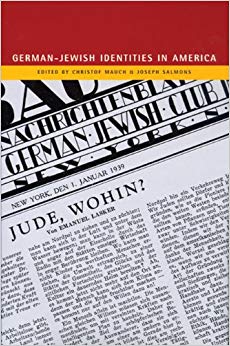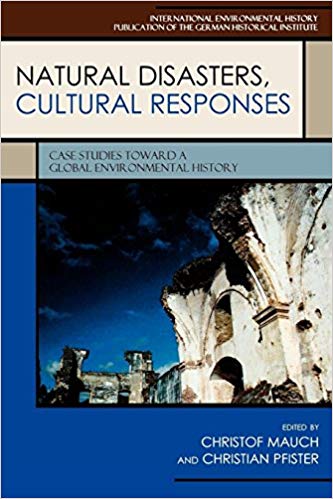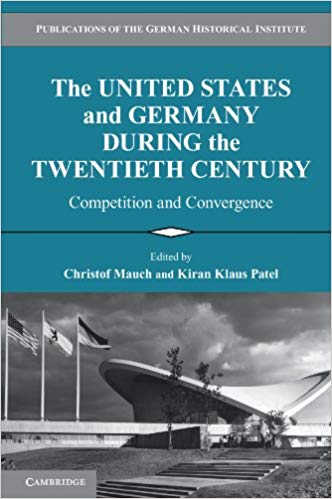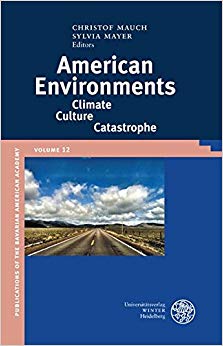Background
Christof Mauch was born on February 9, 1960, in Sindelfingen, Baden-Wurttemberg, Germany. He is the son of Norbert A. and Elsbeth M. (Roller) Mauch.

Strand, London WC2R 2LS, UK
King’s College
The Manor House, The Sternberg Centre, 80 East End Road, Finchley, London N3 2SY, United Kingdom
Leo Baeck College
Geschwister-Scholl-Platz, 72074 Tübingen, Germany
University of Tuebingen
Regina-Pacis-Weg 3, 53113 Bonn, Germany
University of Bonn
4400 Massachusetts Ave NW, Washington, DC 20016, USA
American University
3700 O St NW, Washington, DC 20057, USA
Georgetown University
1607 New Hampshire Ave NW, Washington, DC 20009, USA
German Historical Institute
Geschwister-Scholl-Platz 1, 80539 München, Germany
Ludwig-Maximilians University
Leopoldstraße 11A, 80802 München, Germany
Rachel Carson Center for Environment and Society
Albertus-Magnus-Platz, 50923 Köln, Germany
University of Cologne
Christof Mauch, Martin Wirsing, Barbara Walzog, Claudia Binder, Angelika Vollmar and Dieter Frey at the Center for Leadership and People Management
Christof Mauch at the 1st LMU-China Academic Network Scientific Forum
Christof Mauch Represents Transatlantic Environmental Humanities. Humboldt Foundation Reception with Chancellor Angela Merkel
Directors Helmuth Trischler and Christof Mauch at Rachel Carson Center for Environment and Society
Christof Mauch at the University of Washington
Christof Mauch's visit – Centre for Environmental History
Christof Mauch at the Centre for Environmental History




















(Changing political, social, and cultural circumstances ha...)
Changing political, social, and cultural circumstances have led German Jews in America to take on many different identities. These essays examine such varied topics as the relationship between German and Eastern European Jews in America, the development of the B’nai Brith, nineteenth-century Jewish community-building in Chicago, the role of German Jews in the building of modern American show business, and the correlation between date of emigration and language loss among Jews fleeing to America from Nazi Germany.
http://www.amazon.com/gp/product/0924119071/?tag=2022091-20
2003

(By looking at examples from the United States and Europe,...)
By looking at examples from the United States and Europe, the chapters in this volume explore the relationship between the road and the landscape that it traverses, cuts through, defines, despoils, and enhances.
http://www.amazon.com/gp/product/0821417681/?tag=2022091-20
2008

(The essays collected here help us to understand not only ...)
The essays collected here help us to understand not only how people in different times throughout history have learned to cope with disaster but also how humans in different parts of the world have developed specific cultural, social, and technological strategies for doing so.
http://www.amazon.com/gp/product/0739124161/?tag=2022091-20
2009

(The United States and Germany during the Twentieth Centur...)
The United States and Germany during the Twentieth Century presents a wide ranging comparison of American and German societies during the late 19th and 20th centuries.
http://www.amazon.com/gp/product/0521145619/?tag=2022091-20
2010

(This volume focuses on environmental knowledge production...)
This volume focuses on environmental knowledge production in the United States by taking as starting points the impact of natural catastrophes and of public debates on climate change and environmental threats.
http://www.amazon.com/gp/product/3825360059/?tag=2022091-20
2012
educator historian author scholars
Christof Mauch was born on February 9, 1960, in Sindelfingen, Baden-Wurttemberg, Germany. He is the son of Norbert A. and Elsbeth M. (Roller) Mauch.
Mauch attended King’s College and Leo Baeck College in London from 1983 to 1984. He then obtained his doctorate in Modern German Literature at the University of Tuebingen in 1990 and his doctorate in Modern History in 1998 from the University of Cologne.
Mauch started his career as a lecturer at the University of Tuebingen in 1990. In 1994, he went to the University of Bonn and the next year, went to the United States, where worked first as a lecturer at American University and Georgetown University and then as a director of the German Historical Institute in Washington D.C. till 2007.
Currently, Mauch is a German historian, presently director of the Rachel Carson Center for Environment and Society in Munich, Germany, and since 2007 professor of American Cultural History and Transatlantic Relations at Ludwig-Maximilians University in Munich.
Christof Mauch is best known as a historian, with an interest in international environmental history as well as nineteenth- and twentieth-century North American and German history. In May 2013 he was appointed Honorary Professor at Renmin University, Beijing, China.
During his long career, Mauch wrote a number of works on the subject of German and American history, including Natural Disasters, Cultural Responses: Case Studies toward a Global Environmental History, The Shadow War Against Hitler: The Covert Operations of America's Wartime Secret Intelligence Service, American Environments: Climate-Cultures-Catastrophe, German-Jewish Identities in America, Nature in German History, Berlin – Washington. Capital Cities, Cultural Representations, and National Identities, Adolf Cluss, Architect: From Germany to America, Shades of Green: Global Environmentalism in Historical Perspective, Rivers in History, Beyond the Windshield: Landscapes and Roads in Europe and North America and many others.
(The essays collected here help us to understand not only ...)
2009(By looking at examples from the United States and Europe,...)
2008(This volume focuses on environmental knowledge production...)
2012(The United States and Germany during the Twentieth Centur...)
2010(Shades of Green examines the impact of political, economi...)
2006(Changing political, social, and cultural circumstances ha...)
2003(The Shadow War Against Hitler is the full story of Americ...)
2002Mauch is married to Wendy Morgan Lower. The marriage produced 2 children: Ian Maxwell and Alexander Morgan.
